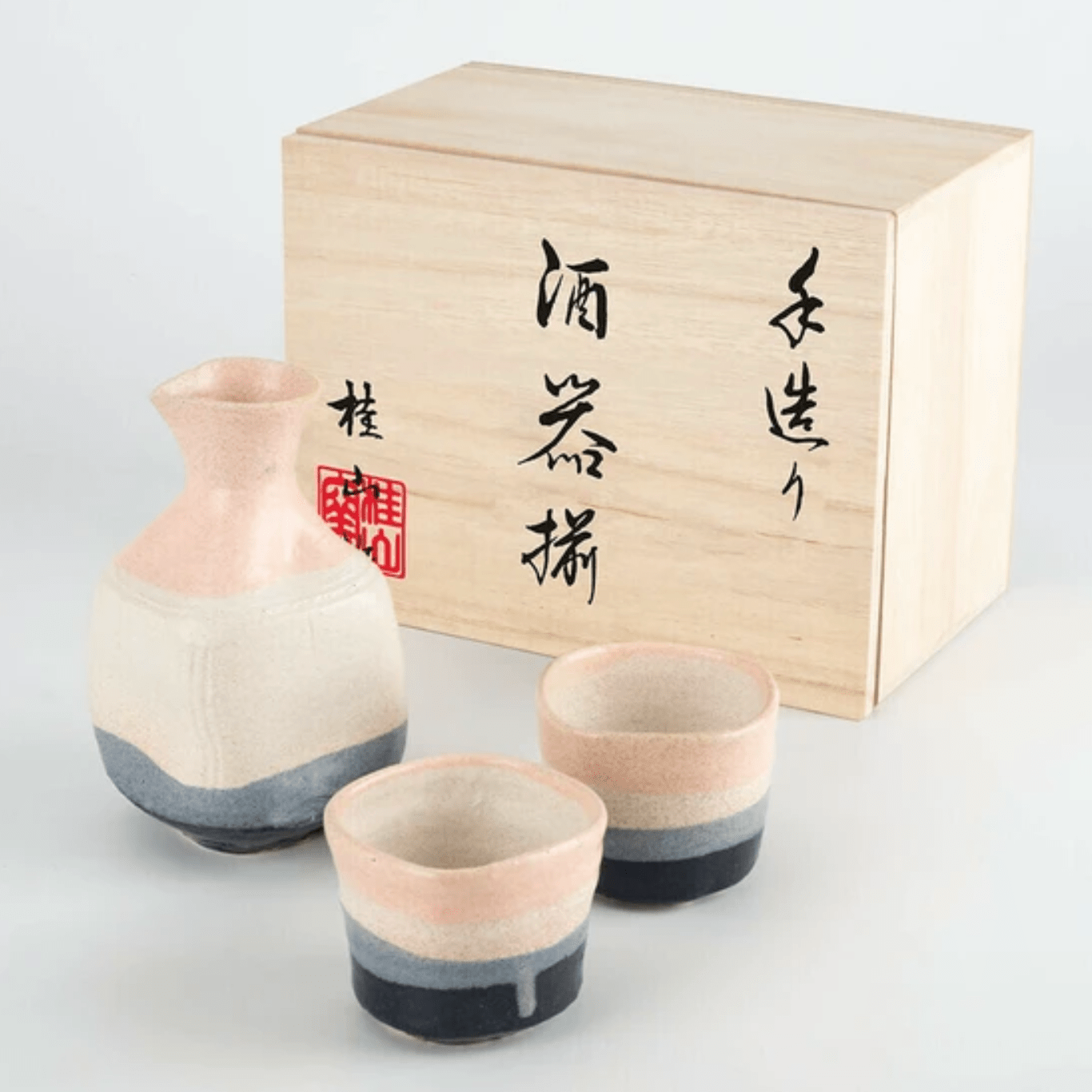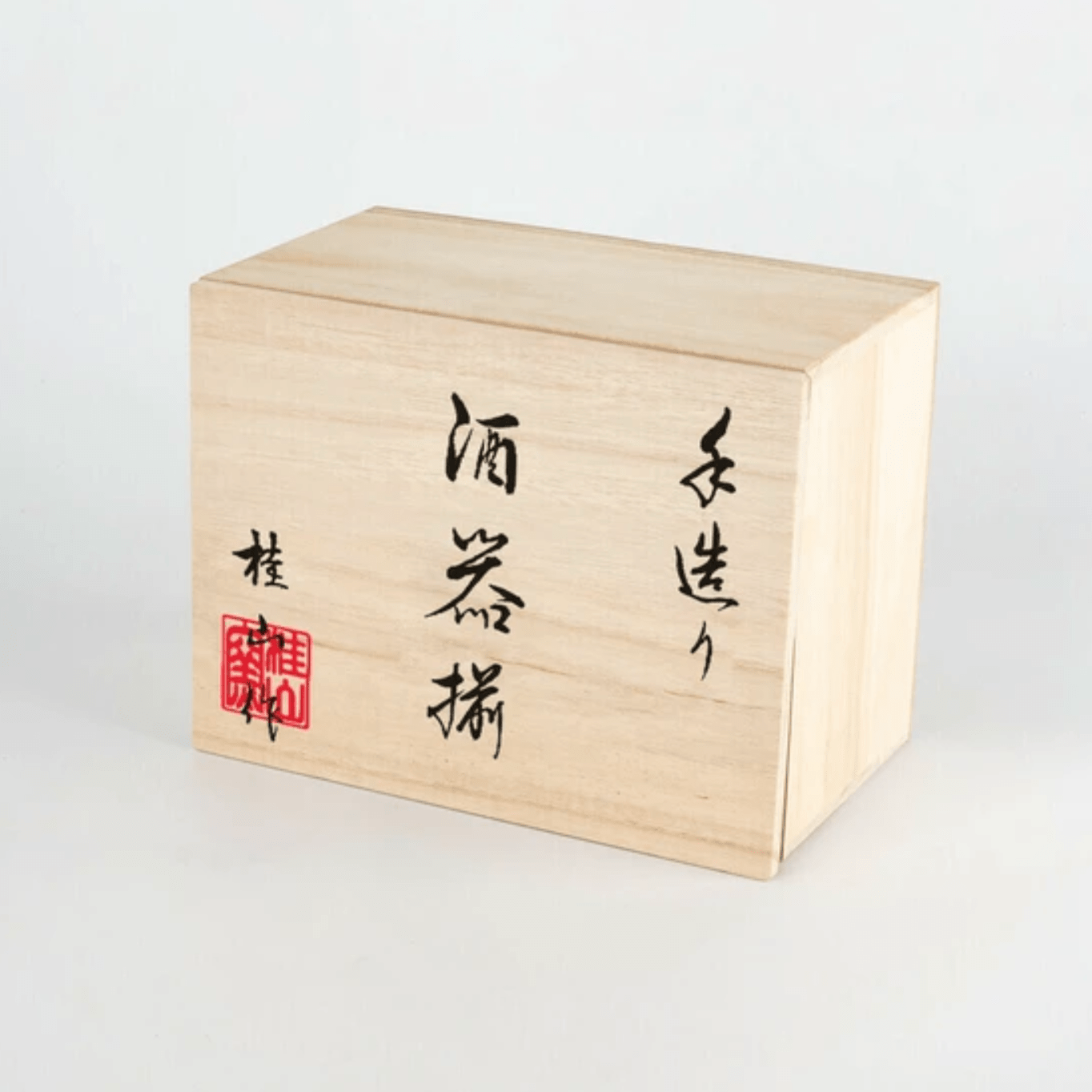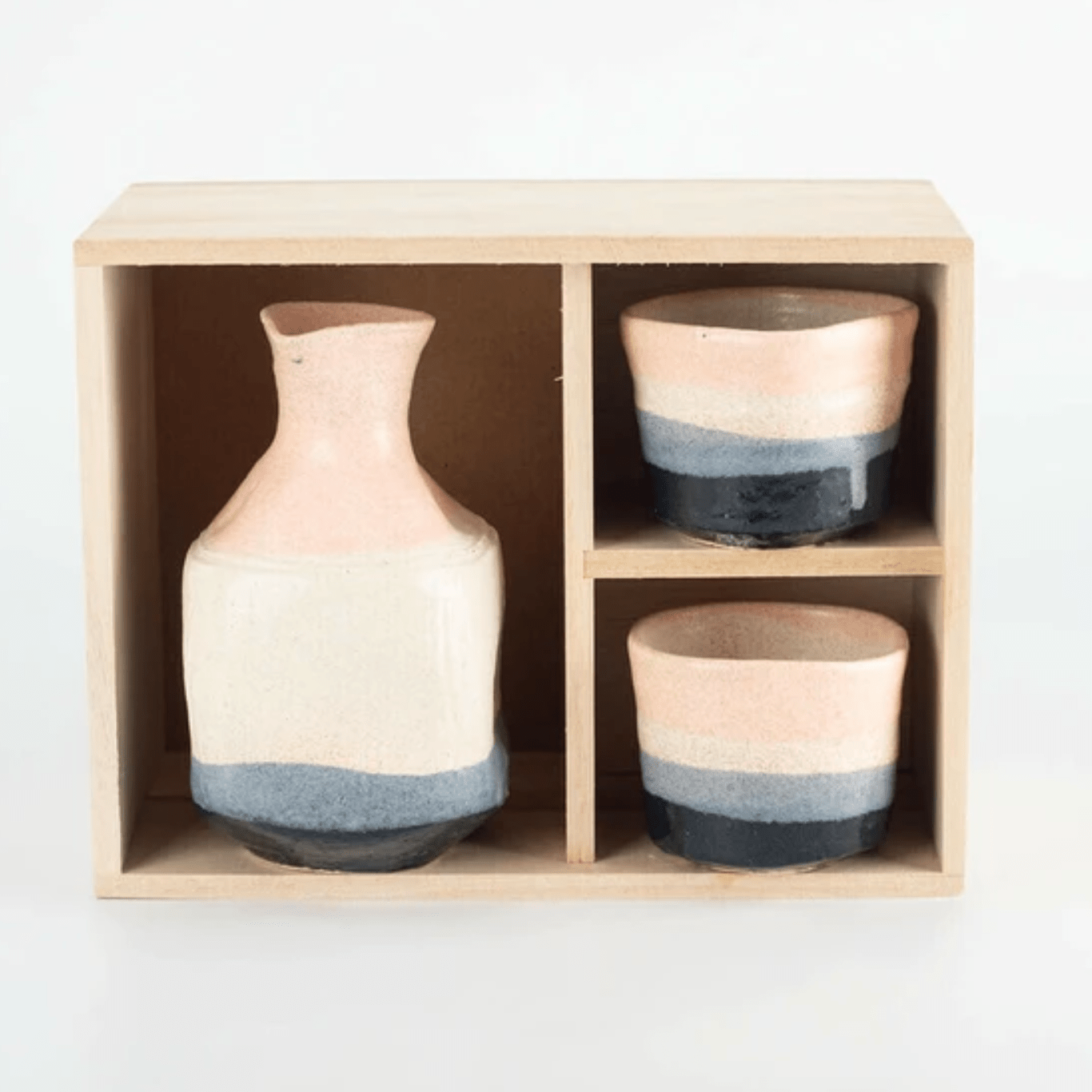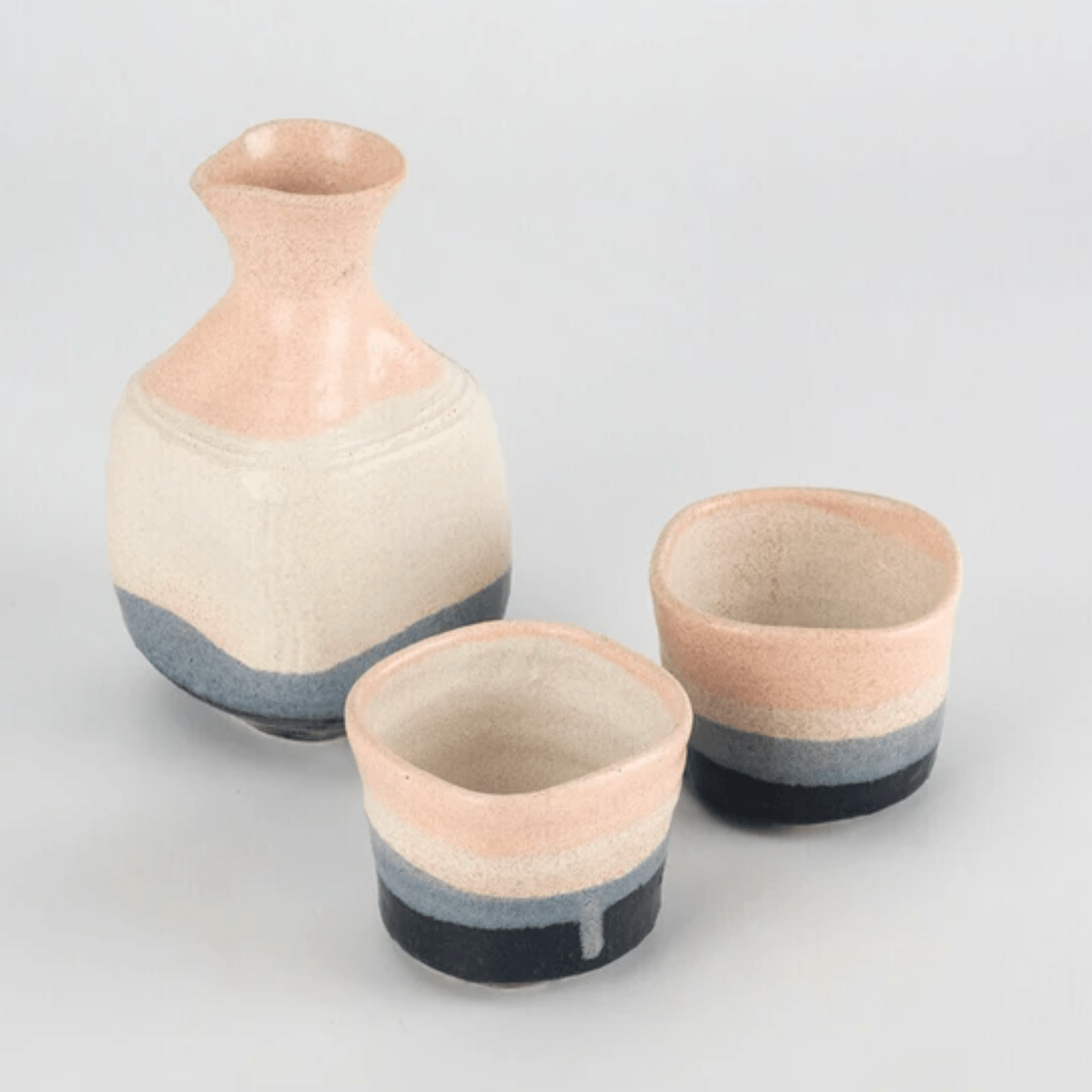



Handmade Shino Indigo Sake Set
Fast & Secure Delivery from Japan to your Door [Shipping Policy]
No surprise U.S. customs fees. [How we handle U.S. Customs for you]
Shop Safely with Encrypted Checkout and Verified Gateways.
Pairs well with

Handmade Shino Indigo Sake Set
Soft Hue, Deep Heritage – Handmade Shino Indigo Sake Set by Katsufumi Wada
Keizan Kiln Elegance – By Takuo Award Winner Kazufumi Wada
This Handmade Shino Indigo Sake Set is a work of balance, beauty, and legacy. Created by Kazufumi Wada of the esteemed Katsuragama kiln—winner of the prestigious Takuo Award—it represents the highest level of Japanese folk craft. Carefully hand-thrown and fired in Gifu Prefecture, each piece captures the essence of Mino ware: functional form, rich glaze, and timeless soul.
Shino glaze is a hallmark of Japanese ceramics, cherished for its soft texture and muted coloration. In this set, it takes on a contemporary elegance with layered tones of pink, ivory, indigo, and black. The rounded tokkuri (sake bottle) and matching ochoko (cups) feature minimal yet expressive silhouettes—comfortably held, naturally organic, and designed to enhance the experience of warm or chilled sake.
Gift-Ready Wooden Box & Artistic Simplicity
Presented in a traditional wooden box with bold calligraphy, this set is ideal for gifting or display. Whether used for personal ritual, shared with guests, or cherished as a collector’s item, it embodies both Japanese aesthetics and practical craftsmanship. Each piece sits neatly within its compartment, protected and elevated like the treasures they are.
The Handmade Shino Indigo Sake Set offers a tactile and visual escape—an invitation to slow down, sip with intention, and enjoy a timeless tradition reimagined in modern tones.
Product Information
Care instructions
Note
FAQs
All you need to know about Japanese Pottery.
What types of traditional pottery are made in Japan?
Japan is home to several renowned pottery styles, including Mino ware (Gifu), Bizen ware (Okayama), Arita and Imari ware (Saga), Shigaraki ware (Shiga), and Mashiko ware (Tochigi). Each region has its own distinct materials, glazes, and firing techniques that reflect local history and aesthetics. Toki City in Gifu Prefecture is particularly renowned as the heart of Mino ware (Minoyaki)—the most widely produced pottery style in Japan.
What materials are used in artisan Japanese pottery?
Most artisan pottery in Japan is made from locally sourced clay, often mixed and refined by hand. Natural minerals and ash are used in glazes, and many pieces are wood-fired or fired in traditional climbing kilns (noborigama), producing unique surface textures and natural variations.
Are artisan Japanese pottery pieces safe for food use?
Yes. Authentic artisan pottery is made with food-safe, lead-free glazes and is carefully fired at high temperatures to ensure durability and safety. However, it's important to follow care instructions, especially for unglazed or porous ceramics.
What makes Japanese pottery different from Western ceramics?
Japanese pottery often emphasizes wabi-sabi—the beauty of imperfection—resulting in organic shapes, subtle asymmetry, and natural glazes. Unlike Western ceramics, which may prioritize uniformity, Japanese pieces often celebrate the individuality of each item, reflecting the artist's hand and the firing process.
How should I care for artisan-made Japanese pottery?
Hand-wash pottery with mild soap and avoid extreme temperature changes (like placing hot items into cold water). Some unglazed pieces may absorb moisture, so allow them to fully dry before storing. Avoid microwaves or dishwashers unless the piece is specifically labeled as safe for such use.
Do I need to season my matcha bowls before using them?
In most cases, seasoning a matcha bowl is not necessary—especially if the bowl is fully glazed, as the glaze naturally seals the surface and makes it ready for use. However, if the bowl is unglazed or has a raw clay base, a simple seasoning process called medome can help prevent cracking or staining. To season, soak the bowl in warm water mixed with a spoonful of cooked rice or flour for about 30–60 minutes, then rinse and let it dry completely. This step helps fill tiny pores in the ceramic and adds durability over time.

